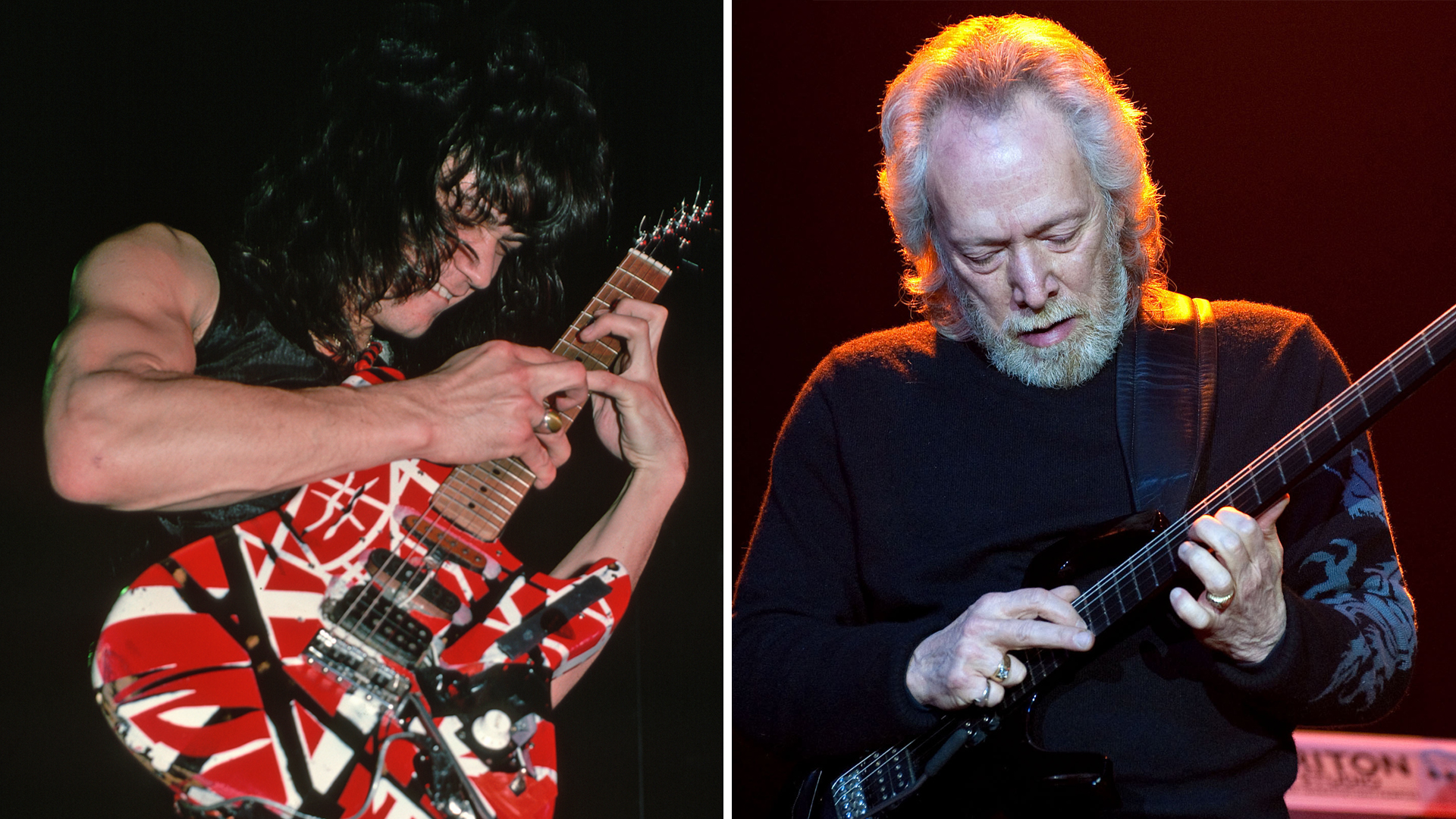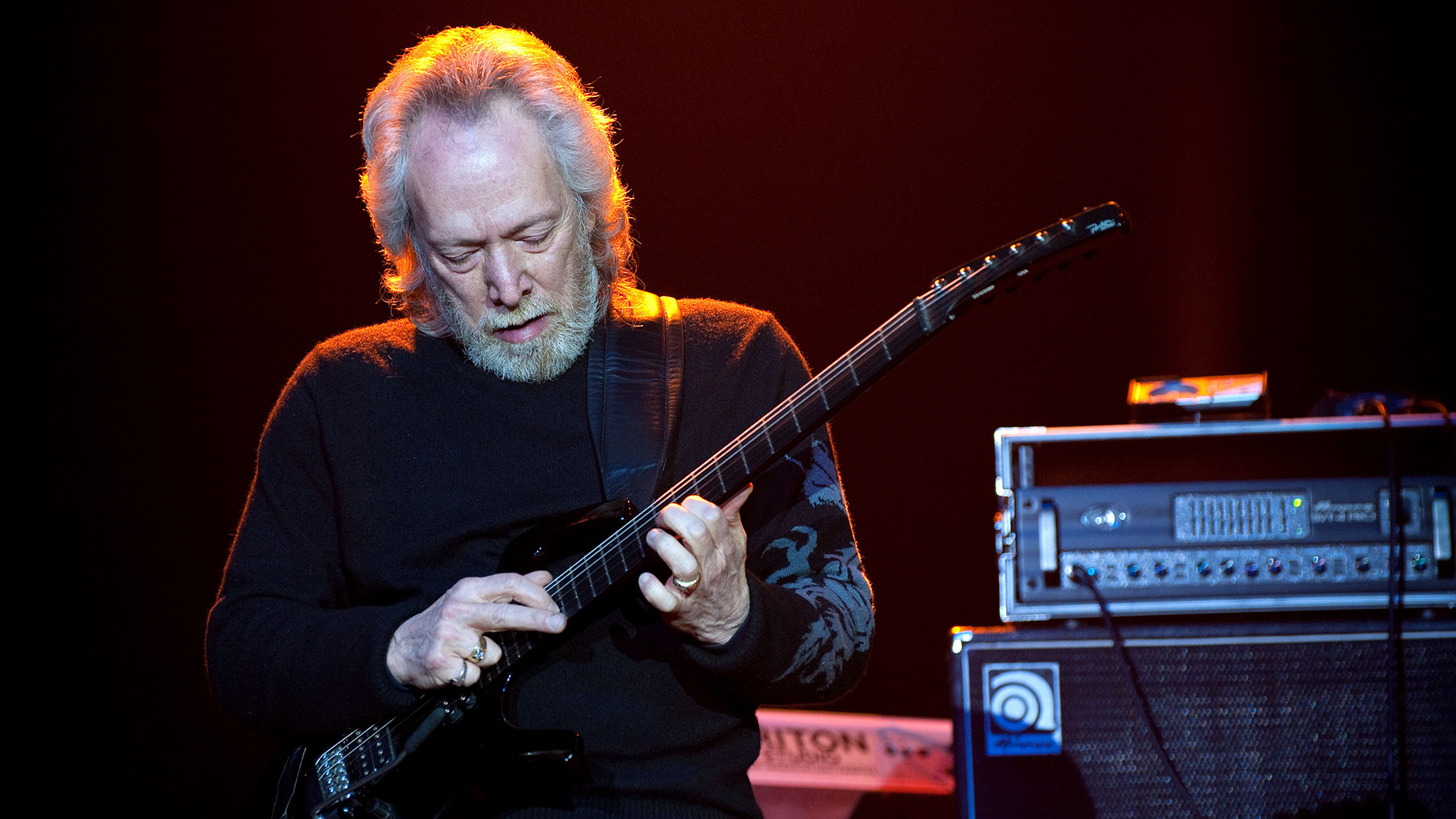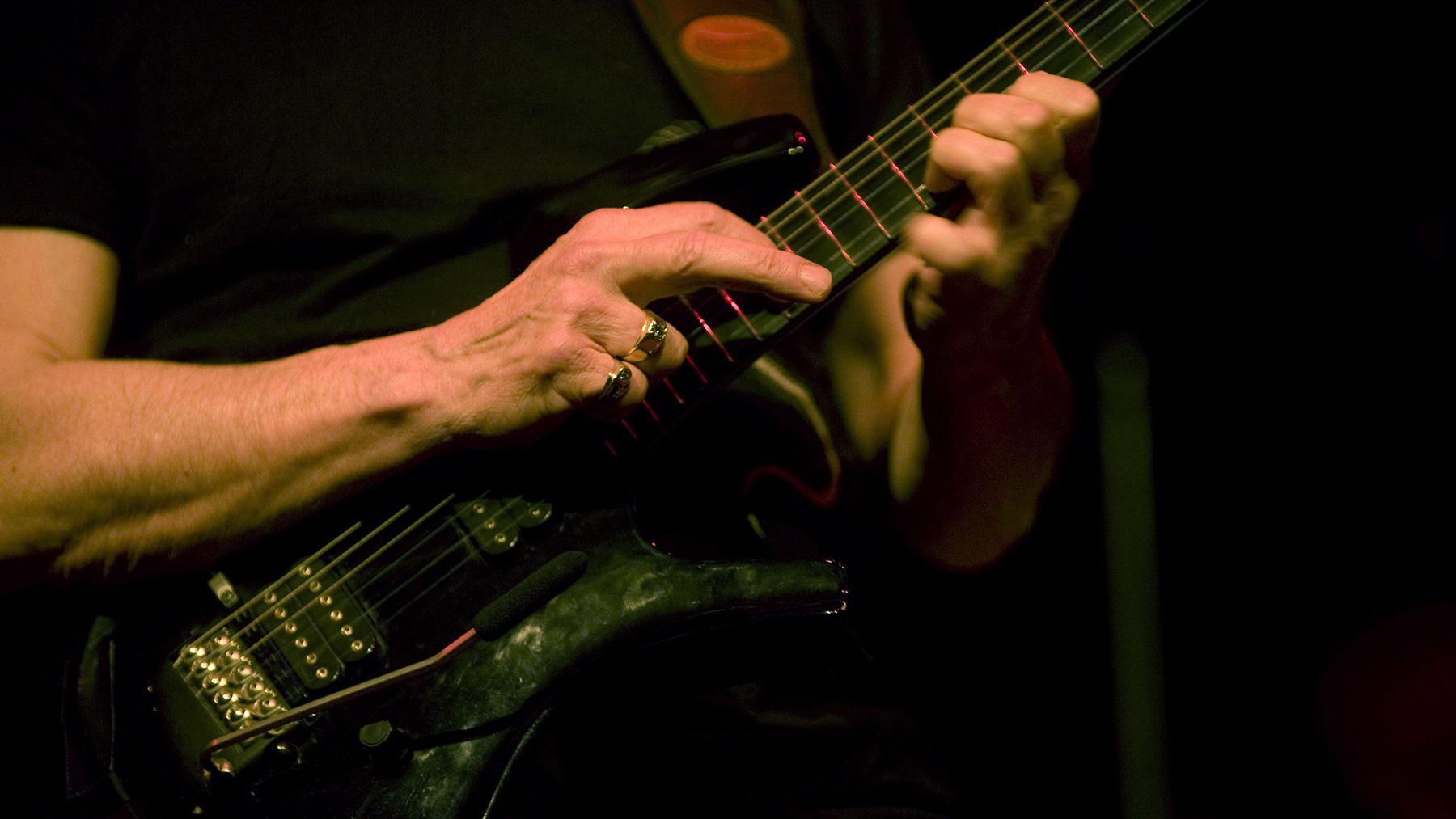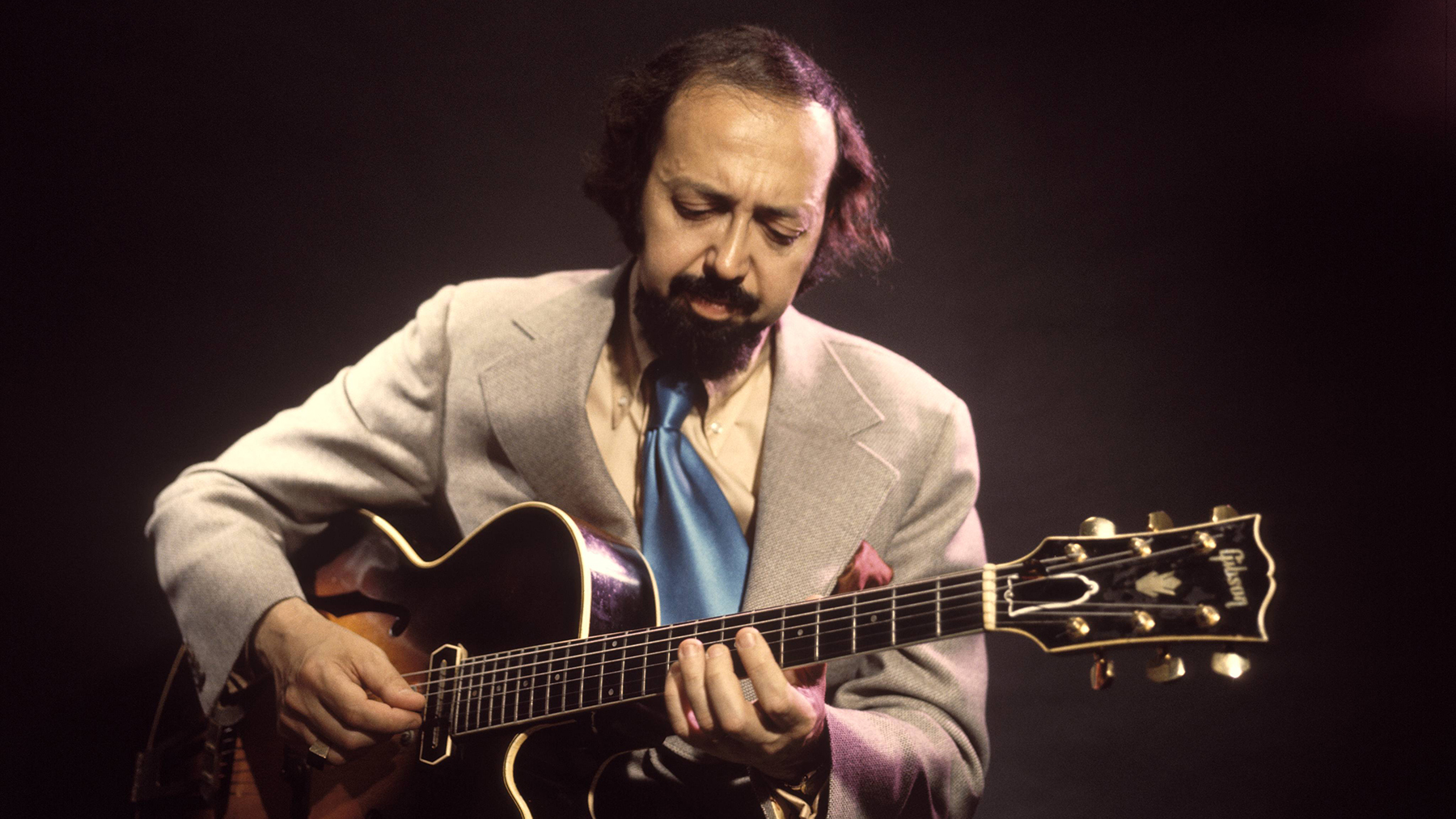"George Lynch, Van Halen and a couple of different people saw me doing it." Harvey Mandel says he wants credit for introducing Eddie Van Halen to two-handed tapping
The guitarist has no beef with Van Halen, but he wouldn't mind getting his due for using the technique long before Eddie and most other rock guitarists

Guitarist Harvey Mandel wants credit for helping to bring two-handed tapping into rock guitar’s repertoire. Not only does he claim to have been performing the technique on electric guitar several years before Eddie Van Halen rose to prominence, but he has two well-known guitarists to back him up.
Ritchie Blackmore told Guitar World’s Mordechai Kleidermacher way back in 1991 that he’d first witnessed two-handed tapping when he saw Mandel perform in the late 1960s.
“The first person I saw doing that hammer-on stuff was Harvey Mandel, at the Whisky A Go-Go in '68," said Blackmore, who told Guitar Player in 2018 how he ended up with the world's loudest Marshall amplifier. "I thought, What the hell is he doing? It was so funny.” Blackmore claimed the sight was so odd that “even the audience stopped dancing. Obviously, Eddie Van Halen must have picked up a few of those things.”

More recently, in an interview with Rocket circa 2009, George Lynch claimed he and Eddie Van Halen were together when they saw Mandel perform the technique. “We both witnessed Harvey Mandel from Canned Heat do a neoclassic tapping thing at a club called the Starwood in Hollywood back in the 70’s,” Lynch revealed.
In a new interview with Guitar World, Mandel makes it clear he doesn’t want to be overlooked for his contribution.
“I was actually doing it way before Van Halen and way before almost everyone else did after him,” he says. “People heard my stuff and thought I was a jazz player!”
As Mandel explains, he picked up the two-handed tapping technique in the late ‘60s from Randy Resnick, his co-guitarist in the American blues-rock group the Pure Food and Drug Act.
“He did it in a very melodic but simple way,” Mandel says of Resnick, adding that he was able to figure out the technique on his own after watching Resnick.
“Unfortunately, when I was doing the tapping, I wasn’t with a known band,” Mandel says, “as opposed to Van Halen, who had a hit record, so he did it, and the world got to hear it. When I did it, the audience that got to hear me do it was much more limited.”

While Ace Frehley has claimed Van Halen took the concept from him, Mandel believes the guitarist was inspired to perform two-handed tapping after seeing him do it at the Starwood.
“I was playing at the Whisky and the Starwood, and George Lynch, Van Halen and a couple of different people saw me doing it,” he says. “Next thing I know, he’s using it all the time, and he took it off into his own world.”
Mandel makes it clear that he has no beef with Van Halen. “He played great; I can’t say anything bad about Van Halen,” he explains. “He was a great player! But he was more of a gymnastic player.
“I still did the fast tapping and everything, but I tried to make it more musical, and parts of the melodies of the songs and stuff, as opposed to just going crazy and showing off with it.”
For a good listen to Mandel's tapping in action, check out his 1973 album Shangrenade. "Every song, every note of guitar you’re hearing on that record, except for the rhythm playing, I’m doing finger tapping," Mandel told Guitar Player in an excellent 2022 interview with Bill Milkowski for his most recent album, Who's Calling. "All those melodies, everything I did is total finger-tap style. And everything wasn’t about doing the real fast thing like Eddie Van Halen did. It’s more slow melodies, some soloing, but still going back and forth from one hand to the other, totally tapping. It’s all fingertips."
As for Van Halen, he told Guitar World in 2008 that he got the idea from Jimmy Page. "I think I got the idea of tapping watching him do his ‘Heartbreaker’ solo back in 1971,” he told the magazine. “He was doing a pull-off to an open string and I thought… I can do that, but what if I use my finger as the nut and move it around?"
The origins of two-handed tapping on guitar go back well before Mandel or his bandmate Resnick. As just a few examples, pickup designer Harry DeArmond used the technique to demonstrate his pickups’ sensitivity, and his friend Jimmie Webster not only put it to use but also described it in his 1952 guitar instruction book Touch Method for Electric and Amplified Spanish Guitar. Barney Kessel employed it as well, as did Italian guitarist Vittorio Camardese, who demonstrated two-handed tapping in 1965 on an Italian television show.

Mandel has had quite a diverse career, having performed with Charlie Musselwhite, Graham Bond and John Mayall, among others. He began working with Canned Heat in 1969 and played with the group at Woodstock that year.
Following Mick Taylor’s departure from the Rolling Stones, Mandel was invited to perform on their 1976 album Black and Blue. As he tells Guitar World in his new interview, he believes he would have been invited to join the group were it not for Keith Richards’ friendship with Ronnie Wood, who became — and remains — Keef’s co-guitarist.
Get The Pick Newsletter
All the latest guitar news, interviews, lessons, reviews, deals and more, direct to your inbox!
Christopher Scapelliti is editor-in-chief of GuitarPlayer.com and the former editor of Guitar Player, the world’s longest-running guitar magazine, founded in 1967. In his extensive career, he has authored in-depth interviews with such guitarists as Pete Townshend, Slash, Billy Corgan, Jack White, Elvis Costello and Todd Rundgren, and audio professionals including Beatles engineers Geoff Emerick and Ken Scott. He is the co-author of Guitar Aficionado: The Collections: The Most Famous, Rare, and Valuable Guitars in the World, a founding editor of Guitar Aficionado magazine, and a former editor with Guitar World, Guitar for the Practicing Musician and Maximum Guitar. Apart from guitars, he maintains a collection of more than 30 vintage analog synthesizers.
“We’d heard Jimi Hendrix, we'd heard the Who, but now we finally got to see these guys. And watching Jimi Hendrix burn his guitar….” Grace Slick on Hendrix at Monterey, Jefferson Airplane and the Spanish origins of “White Rabbit”
“I’m still playing but I’m covered in blood. Billy’s looking at me like, ‘Yeah! That’s punk rock!'” Steve Stevens on his all-time worst gig with Billy Idol — and the visit to Jimi Hendrix's grave that never happened









